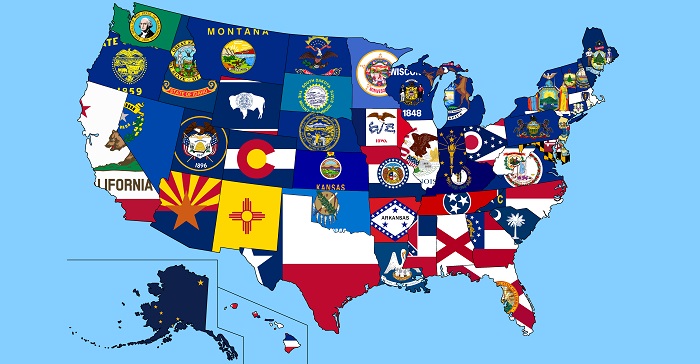Article IV, Section 2 of the Constitution states that “the citizens of each state shall be entitled to all privileges and immunities of citizens in the several states.”
Often referred to as the “comity clause,” Alexander Hamilton called it “the basis of the union.” In his paper Origins of the Privileges and Immunities of State Citizenship under Article IV, Professor of Law Stewart Jay summarized it this way.
The clause had one overriding purpose: to assure that Americans were not treated as aliens when in states away from their place of citizenship. It was intended to preserve the benefits that Americans had as British subjects of being afforded the same rights as local residents anywhere in the country.
Privileges include protections or benefits bestowed by a government. Immunities often corresponded to privileges. Constitutional scholar Robert Natleson used the example of a privilege granting a tax exemption; it creates immunity from paying taxes. Immunities can also stand alone as government grants exempting certain groups from the force of law. For instance, a tax-free zone in a city to stimulate development would count as an immunity. 
The founding era definition of privileges did not include natural rights such as liberty of conscience, the right of self-defense and the right to property. But governments could grant privileges or immunities to protect these rights. Natelson uses the example of the privilege of the writ of habeas corpus protecting the natural right to liberty.
Declaration and Resolves of the First Continental Congress passed in 1744 infers the distinction between natural rights, and privileges and immunities, emphasizing the unalienable nature of natural rights contrasted with government grants that give rise to privileges and immunities.
Resolved, N.C.D. 1. That they [inhabitants of the English colonies in North-America] are entitled to life, liberty and property: and they have never ceded to any foreign power whatever, a right to dispose of either without their consent.
Resolved, N.C.D. 7. That these, his Majesty’s colonies, are likewise entitled to all the immunities and privileges granted and confirmed to them by royal charters, or secured by their several codes of provincial laws.
Privileges and immunities were closely related to commerce during the colonial period and the early years of the republic. In the colonial period, the British government granted privileges allowing merchants from one colony to conduct trade in others without special grants from the host. Other important privileges included the right to travel freely between the colonies, and legal privileges such as the right to access courts, trial by jury and the right to enter into contracts.
American colonists adopted these principles when they declared independence. and enshrined them into the Articles of Confederation, in Article IV Sec. 1.
The better to secure and perpetuate mutual friendship and intercourse among the people of the different States in this Union, the free inhabitants of each of these States, paupers, vagabonds, and fugitives from justice excepted, shall be entitled to all privileges and immunities of free citizens in the several States; and the people of each State shall free ingress and regress to and from any other State, and shall enjoy therein all the privileges of trade and commerce, subject to the same duties, impositions, and restrictions as the inhabitants thereof respectively, provided that such restrictions shall not extend so far as to prevent the removal of property imported into any State, to any other State, of which the owner is an inhabitant; provided also that no imposition, duties or restriction shall be laid by any State, on the property of the United States, or either of them.
This carried over to Article IV Sec. 2 of the Constitution. While significantly shortened, the Constitutional provision was generally understood to carry the same meaning as the clause in the Articles. When proposed during the Philadelphia Convention, it passed with no debate. [James Madison addressed some confusion inherent Article IV Sec. 1 of the Articles relating to naturalization in Federalist 42]
Supreme Court Chief Justice Edward Douglass White would later confirm this understanding in a 1920 opinion. He wrote that the Article IV Sec. 2 of the Constitution was intended “to perpetuate the limitations” found in Article IV of the Article of Confederation.
The comity clause simply guarantees that any privilege or immunity granted to a citizen of a state, based solely on his or her citizenship, applies equally to any visitor from another state. In practice, it means that a citizen from another state can enter into contracts, access courts, buy and sell, travel freely and engage in other legal activities in the same manner as a citizen of the host state.
In his book Government by Judiciary, constitutional scholar Raoul Berger explained the scope of the comity clause through the words of Supreme Court Justice Samuel Miller.
Justice Miller correctly stated that Article IV Sec. 2, “did not profess to control the powers of the State governments over the rights of its own citizens.” Its sole purpose was to require that the rights granted by a State to its “own citizens…the same, neither more nor less, shall be the measure of the rights of citizens of other States within your jurisdiction.”
The comity clause creates a framework where all Americans receive the same treatment under the law within a state, while leaving the details of the law to each state independently. It requires equal application of privileges and immunities within a state, but it does not dictate the nature of those privileges and immunities. That power remains with the states and the people.




